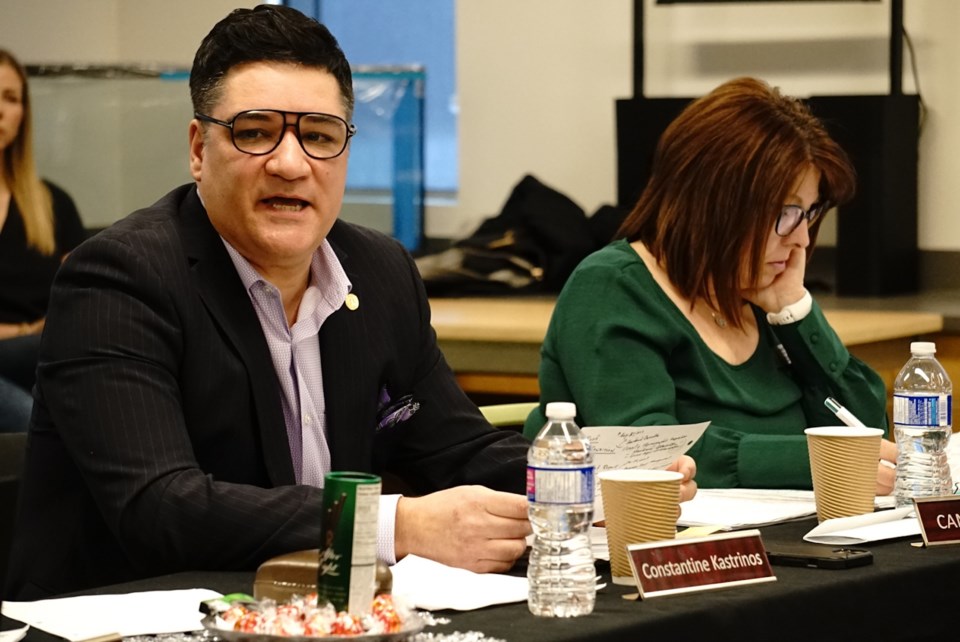ATHABASCA – Parents of elementary-aged students at Whispering Hills Primary School (WHPS) and Landing Trail Intermediate School (LTIS) can take a look at the formal curricula for both Protestant and Catholic studies for the first time before school starts in September.
Aspen View Public Schools, with help from the Athabasca Ministerial Association and St. Gabriel’s Catholic Church, has created course outlines for the courses, which have been ongoing for years, to help improve transparency and to better demonstrate what students are learning when they sign up for the religious instruction.
“Now that we’ve formalized the courses, any school within Aspen View, whether it’s in Athabasca or not, can activate that program if they want to and if they have people within their community that are interested in doing that,” said Supt. Constantine Kastrinos.
Aspen View said the courses are one tool it has to help combat the recent growth of parallel education sectors — in a June interview, board chair Candy Nikipelo said more choices means education funding is getting divided into increasingly smaller piles.
“Every family makes choices for their family based on their own beliefs and values, and that’s something we always acknowledge, and we respect,” she said.
“And, of course, that choice means that the public school division is divided up a little bit more. So that choice in education is good when you have lots of students, but if there is not a lot of students in an area, it can be tough on the small schools.”
While the idea of a public school offering religious-based studies may seem counterintuitive, Kastrinos pointed out that it is already happening. According to Aspen View, 32 per cent of Grade 1 to 6 students participate in the current religious instruction programs, which are allowed in public schools per Section 58 of the Education Act. Per the act, a school board may prescribe religious instruction and exercises to be offered to its students.
“We don’t force kids into this,” said Kastrinos. “There’s this idea of, ‘My kid doesn’t have to have access to that or exposure to that,’ they don’t have to. We wanted to formalize it so if someone asked, ‘What’s in the curriculum?’ we could point to it.”
An example outcome sheet for Grade 5 students in the Protestant stream shows lessons titled, “Why Trust the Bible?” which includes topics like the integration of science and religion, as well as sections on Easter, Exodus, and Israel.
The Catholic lesson plans include Lent, Easter, and understanding the Lord’s Prayer and the Eucharist.
Both streams include a world religion section where students will comparatively study other Abrahamic religions, including Ukrainian Catholicism, Judaism, and Eastern Orthodoxy.
Quality Control
Kastrinos said he hopes the formalized curriculum will help convince parents to keep their kids in Aspen View’s schools, instead of opting for the private, faith-based sector.
“A reason I wanted to bring this into a public school setting is because if I don’t, I’m going to get 101 pop-up schools that deal with some level of Christian education,” said Kastrinos. “Then I’ve got to ask the question, who’s teaching your kids? Forget the philosophical piece, who’s teaching them math, who’s teaching them for core? Are they certified?”
Faith-based private schools are starting to pop up in Athabasca County, including the Calgary-based Arise Christian Academy, which teaches the Accelerated Christian Education (A.C.E) curriculum and is starting this year.
A.C.E is structured around a literal interpretation of the Bible and has been criticized for failing to meet national- and state-level standards in the United States of America, where it was developed by a Baptist minister in 1970.
Arise Christian Academy didn’t respond to an interview request for this story.
“I believe the motivation for the parent-led home education bend comes down to control. The parent feels strongly here about the philosophical debate, and they want to control the direction of the conversation,” said Kastrinos.
“Unchecked control, unchecked influence, unchecked authority comes at a cost on the back end to the education of the student.”
-With files from Brett McKay



